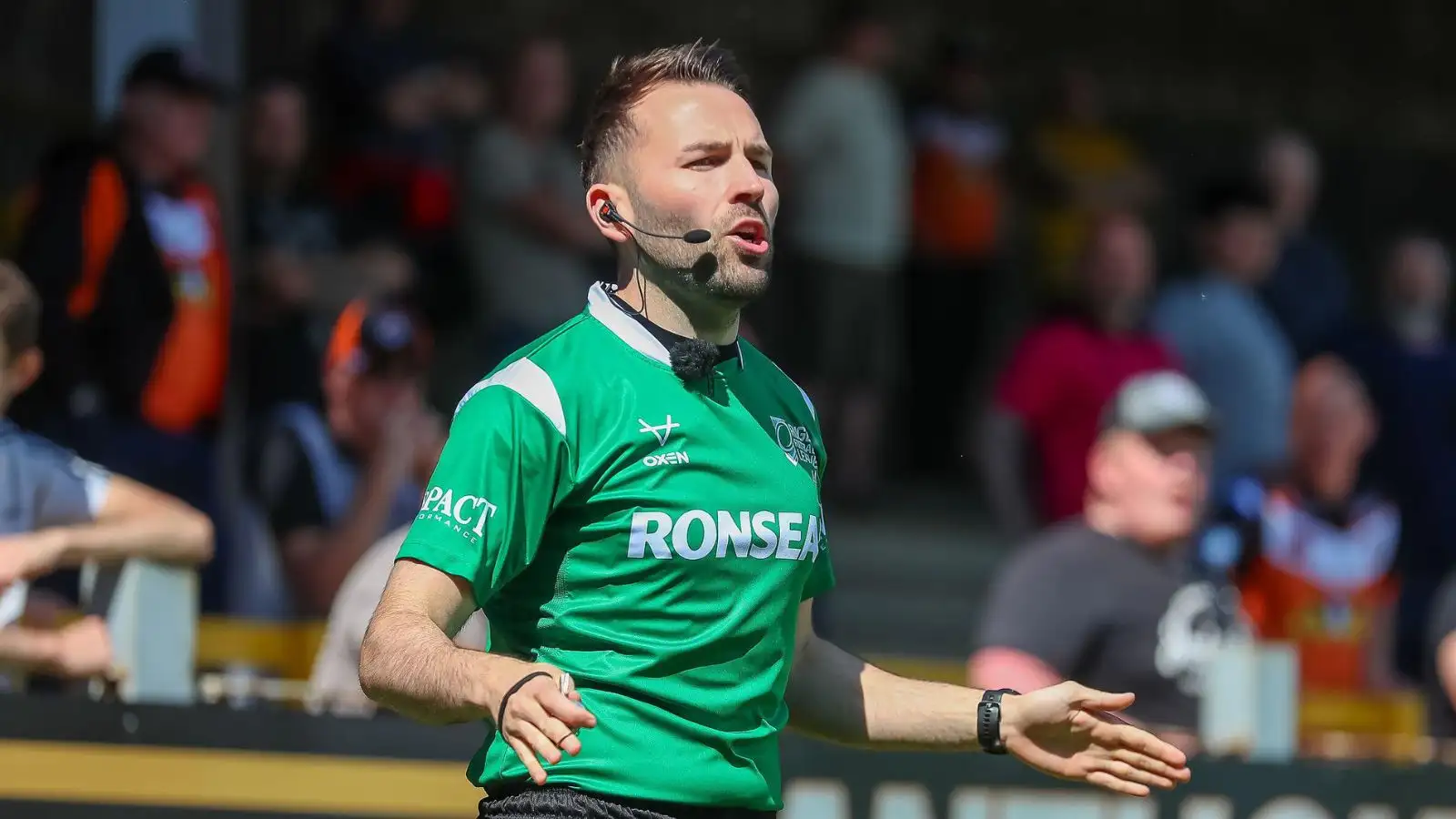Opinion: Rugby league’s match officials will need more support than ever as sport adjusts to new era

RFL referee Liam Moore in action - Alamy
The groundbreaking news about a swathe of law changes that will be implemented across all levels of rugby league in the coming years will impact all stakeholders of the sport.
Players, coaches, spectators and administrators will all have their own unique thoughts on the situation, and they will drastically alter the way we all view and approach the sport from now on.
But there is one group of people in particular that will be affected more than most – and they will need the support of everything throughout what is certain to be a tumultuous few months and years: the sport’s crop of match officials.
So often the focal point for criticism, scrutiny and, in completely unwarranted situations, abuse, referees are going to feel the brunt of rugby league’s law changes more than most.
And everyone in the game has a responsibility to ensure that they are given the proper protection and support with what lies ahead.
Of all the 44 law changes that will be introduced to the sport in the years ahead, the tackle height alteration is the most significant, and that puts referees under huge pressure.
They are going to be giving more penalties, at least in the short-term when the changes come in at the relevant levels of the sport, and as such, are undoubtedly going to have a bigger impact on games.
But it is important to remember that they are simply doing the job being asked of them by the governing body.
You could probably have an off-record, private discussion with any match official and they would tell you that they are dreading the changes. They don’t want to be blowing the whistle 40 or 50 times in a game.
As was pointed out to me last week, those junior officials who took charge during the trial of the tackle height being altered earlier this summer did so under huge pressure. The opening night at Odsal, the referee in question didn’t feel comfortable speaking to the media afterwards, so senior official Marcus Griffiths stepped in and fronted up.
But from 2025, Griffiths and his cohort of full-time officials are going to have no protection. They’re going to be front and centre of the debate, and their decisions are going to be magnified through no fault of their own. As mentioned, they are just doing the job.
The RFL will have a duty to ensure its referees get the proper support and welfare to cope with the extra pressure that the law changes will bring.
Increase in off-field sanction for contact to the head as part of new law changes
 Warrington Wolves forward Joe Philbin leaves the field for a head injury assessment – Alamy
Warrington Wolves forward Joe Philbin leaves the field for a head injury assessment – Alamy
But the tackle height changing in 2025 in the professional game isn’t the only change that will impact match officials: there will be one much sooner than that.
Buried in and amongst the 44 law changes is number 18: a detail that there will be an increase in off-field sanction for contact to the head.
Next year, any direct contact without mitigation to the head will bring with it a minimum Grade D sanctioning. So expect the disciplinary process to be thrown under the spotlight again.
Robert Hicks said last week that the laws of the game will be ‘rigorously enforced’ in an attempt to crack down on contact with the head.
The hope is that throughout 2024, players will become more accustomed to tackling lower to avoid strong sanctions so that when 2025 comes around and the law formally changes, there will be less offences – which will result in a better spectacle for supporters.
But that means in the short-term, referees are going to be issuing more cards and more penalties. Which means the risk of more abuse from the terraces is in play.
It’s on all of us – including the media – to make sure that doesn’t happen. Referees, just like players, need support and proper care to make sure they can do their jobs in a safe environment.
There were shocking scenes on Monday evening in Turkish football, when a referee was physically assaulted by a club owner in the aftermath of a game. Nobody is suggesting that could happen in rugby league but it is a stark reminder that abuse towards officials is perhaps more severe and commonplace than it has ever been.
The game has to ensure it looks after those brave enough to take on the job in what is certain to be a difficult transitional period for rugby league into a new era of contact sport.
READ NEXT: How the RFL’s new rules on ‘match limits’ capping players’ game-time will work from 2024